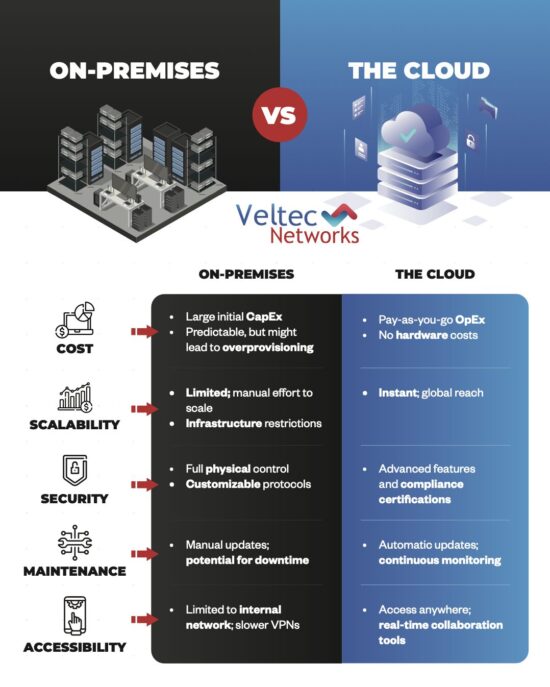Why Law Firms in the San Francisco Bay Area Must Rigorously Evaluate Their Software Choices
In the heart of the tech hub, the San Francisco Bay Area, staying updated with cutting-edge technologies is a must. Yet, this isn’t just about keeping up with Silicon Valley’s pace. For law firms, mainly, it’s about efficiency, security, and giving clients the best service possible. As a managing director or managing partner of a law firm, you have an inherent responsibility to ensure the software your firm uses aligns with its unique needs. This article delves into why you must take the software evaluation process seriously and how to do it effectively.
Download the Veltec Networks Law Firm Software Buyers Guide Here
Understanding the Need
Before diving into the ‘how,’ it’s imperative to grasp the ‘why.’ Why is it essential for law firms to continually evaluate the software they use? The answer lies in three core areas:
- Data Security: In an era where cyber-attacks are rampant, ensuring client confidentiality isn’t just a professional ethic, but also a legal requirement. The software you use should provide top-notch security against potential threats.
- Efficiency and Productivity: The right software can streamline operations, improve case management, and automate mundane tasks, allowing your team to focus on core legal issues.
- Client Expectations: Clients today expect timely updates, easy access to their case details, and smooth communication. Software that facilitates this can elevate client satisfaction and loyalty.
Evaluating Software for Law Firms: A Step-by-Step Guide
- Define Your Needs: Before browsing endless software options, sit down with your team and list your firm’s challenges. Do you need better document management, or is client communication the bottleneck? Knowing what you need is half the battle won.
- Prioritize Security: Given the sensitive nature of legal data, security should be a top consideration. Look for software that offers multi-factor authentication, end-to-end encryption, and regular security updates.
- Seek Scalability: Your software should grow with your firm. Opt for platforms that allow easy integration of new features and can handle the increasing load as your clientele grows.
- Ensure User-Friendliness: A platform may be packed with features, but if your team finds it challenging to use, it defeats the purpose. Choose software that’s intuitive with a gentle learning curve.
- Gauge Client Accessibility: Modern legal practice management software often comes with client portals. These allow clients to track their case progress, access documents, and communicate directly. Such features enhance transparency and trust.
- Review Customer Support: You need robust customer support, especially during the initial transition phase. Ensure the software provider offers timely, helpful, and accessible support.
- Testimonials and Reviews: Check what other law firms, especially those in the San Francisco Bay Area, say about the software. Positive peer reviews can be a reliable indicator of the software’s efficacy.
Conclusion
The software landscape for law firms is vast, with many options vying for your attention. However, making a hasty decision can cost you in the long run. By defining your needs, prioritizing security, and considering scalability, you place your firm in a solid position to select software that meets its current needs and anticipates future challenges.
Remember, the right software doesn’t just make tasks easier; it elevates the entire client experience, sets your firm apart from competitors, and positions you as a forward-thinking leader in the Bay Area’s legal community.






